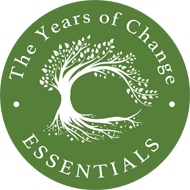
#8.0 HEART HEALTH
Looking after the health of our heart becomes even more important as we go through our menopausal years and beyond. Cardiovascular disease is one of the leading causes of death for women in their later years.
Podcast Episode available
Women’s hearts are different to men’s. Women have smaller hearts; narrower blood vessels and experience cholesterol build up in different ways. Symptoms of heart attacks are different in women. However, until recently women and men were treated the same as far as dealing with cardiovascular disease.
 WHAT IS CARDIOVASCULAR DISEASE?
WHAT IS CARDIOVASCULAR DISEASE?
Cardiovascular disease is a general term to describe conditions that affect the heart or blood vessels. It is usually associated with an increase in fatty deposits in the blood vessels and an increased risk of blood clots. Conditions include coronary heart disease, strokes, angina, heart attack and vascular dementia.
 WHAT ARE THE RISK FACTORS?
WHAT ARE THE RISK FACTORS?
• Smoking
• High cholesterol
• High blood pressure
• Diabetes
• Inactivity
• Age
• Being overweight
• Family history
• Excess alcohol consumption
• Stress
• Gender depending on age (men are at risk earlier than women)
• Depression has links to risk of stroke
• Poor sleep
 WHAT ARE THE SIGNS OF CARDIOVASCULAR DISEASE?
WHAT ARE THE SIGNS OF CARDIOVASCULAR DISEASE?
Women may not have signs of disease until they have a heart attack and the symptoms for women are different from men. It is important that women understand the symptoms of heart attack as they may not be as you would expect.
I have listed the classic symptoms;
• Chest pain, pain in the back between the shoulder blades (men experience this differently as a crushing chest pain)
• Pain in the jaw, neck or throat
• Nausea or vomiting
• Fatigue
• Shortness of breath
• Light headedness / fainting
• Sweating
• Change in pallor
• Feeling restless, sleepless, anxious
These symptoms are different from what men experience and can go undiagnosed, leading to serious consequences. Many women think they have had flu, acid reflux or are experiencing the signs of ageing.
Therefore, as with every other unusual symptom you may experience, never leave things unchecked.
It isn’t as simple as exercising to keep your heart fit. Stress, poor nutrition, too much alcohol, smoking, poor sleep and weight gain, especially around the midsection all have negative effects on heart health so there is much we can do to contribute to having a healthy heart.
 WHAT HAPPENS IN MENOPAUSE?
WHAT HAPPENS IN MENOPAUSE?
• Oestrogen has a cardio protective effect and maintains elasticity in our blood vessels therefore a decline in oestrogen increases the risk of cardiovascular disease.
• Added stress at this stage of life can add to the risks of heart disease.
• Heart palpitations are more common during menopause due to hormonal changes.
• There is an increased incidence of high blood pressure.
• There is often an increase in LDL cholesterol,( the harmful kind)
• Insomnia and sleep problems have been linked to a higher risk of cardiovascular disease – we know poor sleep is common in menopause.
• Women often gain weight around the middle of the body, this is more common to the male shape. Men have higher risks than women until women are postmenopausal.
 WHAT CAN WE DO TO AVOID HEART DISEASE?
WHAT CAN WE DO TO AVOID HEART DISEASE?
• Exercise regularly
• Have check ups and get screened for blood pressure and cholesterol
• Follow a healthy diet as discussed in this program and manage your weight
• Keep a check on your hips to waist ratio
• Drink water and stay hydrated – this allows the heart to pump blood more effectively and allows oxygen to reach your muscles more effectively. If you are dehydrated your blood is thicker and retains more sodium therefore its harder for the blood to be circulated around your body.
• Manage stress and recognise stressors
• Consider quitting smoking
• Keep a check on your alcohol consumption